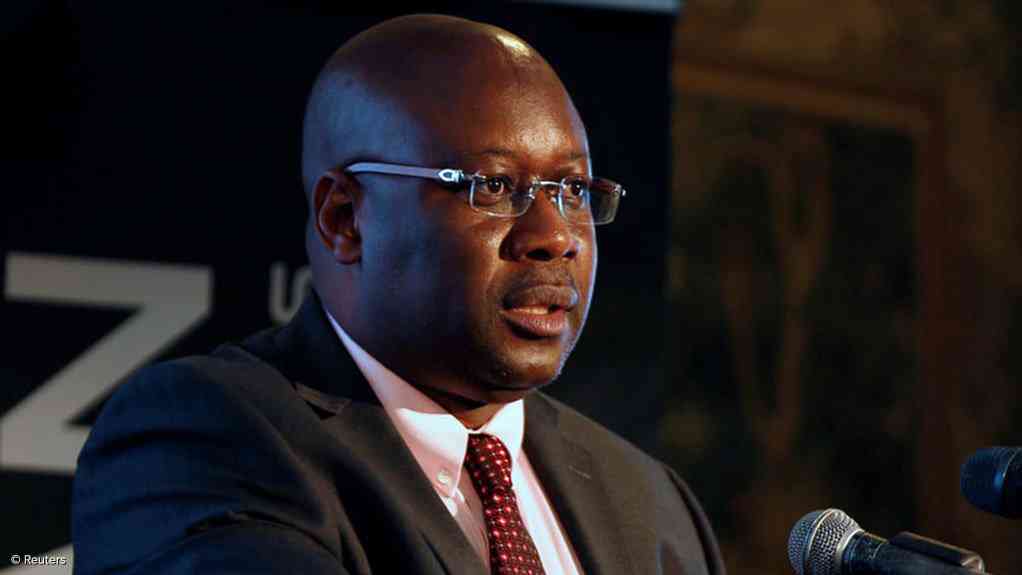
ZIMBABWE'S retail and wholesale sectors faced a tumultuous 2024, marked by widespread branch closures and the exit of international brands, which cited unfair competition and a difficult operating environment.
During the period under review, formal retail markets struggled to cope with a surge in cheap imports, spanning from groceries to clothing and medical drugs.
They also faced unfair competition, high taxation, low consumer demand, stringent trading regulations, and a volatile exchange rate among other setbacks.
Leading retailers, including TM Pick 'n' Pay, Haefelis, Power Sales, and Food World Supermarkets closed some branches across the country.
Pick n Pay Group Limited also impaired its investment in TM Supermarkets to zero due to Zimbabwe's deteriorating economic climate.
Meanwhile, Botswana-domiciled Choppies Enterprises said it was mothballing its Zimbabwean operation, putting 1 051 jobs at risk.
Truworths Zimbabwe, which operates several stores across the country, slipped into corporate rescue in August, citing stiff competition from the informal sector.
Metro Peech & Browne, a major wholesaler, went under corporate rescue.
- EcoCash, OK Zimbabwe seal partnership
- OK Zim ignites Christmas is Here promotion
- Business giant Chiura laid to rest
- Currency woes: Suppliers demand cash upfront
Keep Reading
Zimbabwe's economic challenges have severely impacted formal retailers, as consumers turn to cheaper alternatives, especially smuggled goods available on the informal market.
Zimbabwe Stock Exchange-listed OK Zimbabwe, with a countrywide network of about 60 branches, raised concerns last year over the weight of challenges confronting the sector.
The retail giant highlighted that small traders were well-stocked and more affordable, selling exclusively in United States dollars while avoiding taxes.
In contrast, larger supermarkets have to comply with hefty statutory and other obligations, making their goods more expensive.
This disparity has led to an exodus of customers to downtown traders.
OK Zimbabwe's 2024 annual report revealed a 29,2% decline in volume compared to the prior year, driven by market pricing distortions and macroeconomic constraints.
These constraints included steep price increases, declining consumer spending power, and restrictive supplier trading terms, which adversely impacted product availability.
In September, the Retailers Association of Zimbabwe (RAZ) wrote to the government, warning of potential store closures due to exchange rate-related challenges.
According to Confederation of Zimbabwe Retailers president Denford Mutashu, high informalisation has significantly contributed to the decline of the formal retail and wholesale sector.
Over-regulation and selective enforcement of policies have exacerbated the problem, he said.
“There is a need to streamline the regulatory framework and urgently formalise the informal sector to level the playing field,” Mutashu said recently.
RAZ chairperson Themba Ndebele lamented price control regulations imposed by the government.
He noted that this policy made products expensive compared to those offered by informal sector outlets, ultimately driving customers away.
“It has been a bad year for formal retail and unless the exchange rate issues are dealt with next year, it is not going to get better.”
RAZ urged government to monitor borders and ensure imported goods paid duty.
It called on the authorities to address exchange rate disparities.
“Monitor your borders first. Duties should be paid for all of these products coming into the country, and allow the formal retailers to use the market determined exchange rate,” Ndebele said.
“Formal retailers cannot trade with their hands tied behind their backs. It is like being beaten up by someone while you are unable to fight back because your hands are tied.”
Economist Trust Chikohora said authorities should ensure a free-floating exchange rate to level the playing field.
“The biggest problem comes from an exchange rate, which does not reflect the situation on the ground. Once that happens, it becomes very difficult for the formal sector to compete with the informal sector,” he noted.
“If the government ensures that we have a free-floating exchange rate in the formal sector, which reflects realities on the ground, you will find that because of the economies of scale, the formal sector will be able to compete effectively even against the informal sector.
“There are other measures, including ensuring duty is being paid, which the government is currently trying to do. But I think the biggest one, the one, which makes the formal sector uncompetitive the most, is always to do with the exchange rate if it remains fixed,” Chikohora added.
Stevenson Dhlamini, an economist and lecturer at the National University of Science and Technology, said the government
should improve the ease of doing business.
"There are efforts underway to curb illicit importation of goods and fake products into the country and yet more efforts are needed through capacitating law enforcers with technology to help fight illicit inflow of goods into the economy," he said.
"The government needs to up efforts to ensure foreign currency availability to the formal sector and give tax incentives, especially to the retailers that sell more locally produced goods."
Another economist said the retail sector was not under siege from the informal sector because “it does not have the capital scale that the formal retail sector has”.
“The retail sector is struggling because of an unstable environment that they are operating in,” the economist said.
“The retail sector is operating under a lot of really high overheads. So, the fact that, for instance, our infrastructure is inadequate in terms of energy means they have to supplement energy with generators which cost fuel, which is a very expensive resource.
“So, we are seeing that the retail sector has an increasing scale of overheads, which also means they cannot necessarily pass that cost on to consumers because the consumer's income is also limited.”
Economic analyst Victor Bhoroma urged retailers to lobby the government to implement efficient exchange rates, while they should manage their costs to remain afloat.
“The retailers themselves have to manage their costs, and concentrate on operating branches that are profitable. That is the only thing that you can be able to do to remain in business,” he advised.
“But the ball is in the government's court. The government needs to act. Otherwise, it is obviously going to permanently alter the pattern of how taxes are paid in the country. For example, corporate tax, value added tax, income tax, pay as you earn.
“All those are tax heads that are under threat if the formal sector is wiped out by the informal sector in the sector.”
Bhoroma emphasised that the government needs to understand the retail sector's role in the value chain, highlighting that the retailers are at the end of this chain, and if they struggle, the entire value chain is affected.
To address these challenges, Bhoroma advocated for a market-determined exchange rate to eliminate incentives for hoarding commodities and to encourage transparency.
He cited South Africa's market-determined exchange rate as a positive example.
Bhoroma also recommended that the government set a budget below taxable revenues to reduce borrowing.
Additionally, he suggested exempting compliant and formal players from certain taxes, such as the Intermediated Money Transfer Tax (IMTT), to protect them from multiple taxes.
Furthermore, Bhoroma said there was a need for an efficient foreign exchange system to facilitate the movement of dividends or capital in and out of the country without bottlenecks.
He said having 80% to 85% of the economy informal is unsustainable, as it concentrates power in a small formal sector.
In a bid to formalise the informal sector, Finance, Economic Development and Investment Promotion minister Mthuli Ncube prescribed mandatory registration for Corporate and Personal Income Tax for the emerging sector.
The emerging sector includes fabric merchandisers, clothing merchandisers/boutiques, spare parts dealers, car dealers, grocery and kitchenware merchandisers, hardware operators and lodges.
He said the operators should be mandated to regularise registration of their operations with the Zimbabwe Revenue Authority (Zimra), transact through point-of-sale machines and maintain records of all transactions, by January 1, 2025.
The minister further proposed to empower Zimra to temporarily close businesses, which fail to adhere to these requirements, including failure to register for tax purposes.
He also proposed to extend the Virtual Fiscalisation System for the recording of VAT (Value-Added Tax) taxable transactions to micro and small enterprises whose turnover falls below the VAT registration threshold for purposes of monitoring sales, during the first quarter of 2025.










